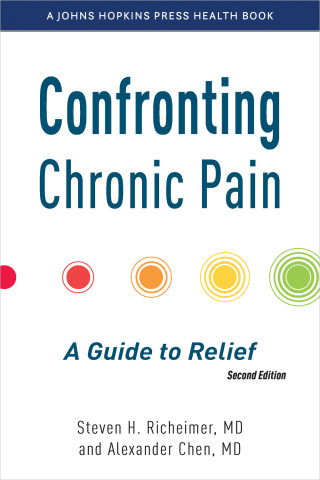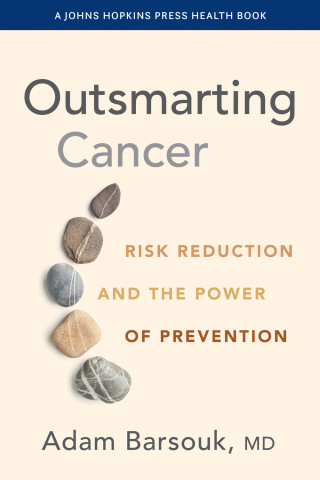
Reviews
A fine resource discussing the challenges of living in a high-risk body.
An insightful and informative read.
A top pick for any breast cancer collection.
This book is an excellent resource for lay people trying to understand and deal with inherited breast and ovarian cancer.
Book Details
Foreword by Mark H. Greene, M.D.
Acknowledgments
Introduction
Part I: Understanding Cancer, Genetics, and Risk
1. Breast and Ovarian Cancer Basics
Most Cancers Aren't Hereditary
An Introduction to Breast
Foreword by Mark H. Greene, M.D.
Acknowledgments
Introduction
Part I: Understanding Cancer, Genetics, and Risk
1. Breast and Ovarian Cancer Basics
Most Cancers Aren't Hereditary
An Introduction to Breast Cancer
An Introduction to Ovarian Cancer
Other Hereditary Cancers
2. A Peek Inside: Your Genes at Work
The Evolution of Genetic Discovery: From Peas to BRCA
Your Genetic ABCs... and a D
Mutations: Spelling Errors in Your DNA Cookbook
How Mutations Lead to Cancer
What's So Special about BRCA?
3. Defining Risk
Making Sense of Statistics
Getting Personal: Factors That Modify Your Risk
It's a Numbers Game
4. Hereditary Cancer: What's Swimming in Your Gene Pool?
Mutations from Mom or Dad
Hidden Risk in the Family Tree
HBOC and Other Hereditary Cancer Syndromes
Plotting Your Genetic Pedigree
Part II: Assessing Your Risk
5. Genetic Counseling
The Value of Counseling
What to Expect from the Process
Why You Need an Expert to Unravel Your Genetic History
Deciding Who Should Test First
6. Genetic Testing: Facing Your Hereditary Horoscope
Which Test Is Right for You?
Powerful, Yet Imperfect
Issues for Survivors and Women in Treatment
7. Decoding Your Test Results
Life, Interrupted: It's Positive
Good News! You're a True Negative
When No Might Mean Maybe
Genetic Variants
Now What? Implications for You and Your Family
Part III: Managing Your Risk: Your DNA Doesn't Have to Be Your Destiny
8. Early Detection Strategies
High-Risk Surveillance for Breast Cancer
High-Risk Surveillance for Ovarian Cancer
Is It Cancer?
Screening for Other Hereditary Cancers
9. Chemoprevention
Risk-Reducing Medications for Breast Cancer
Alternatives under Study
Chemoprevention for Ovarian Cancer
10. Mastectomy for Risk Reduction and Treatment
Reducing Cancer Risk by Removing the Breasts
Skin-Sparing Procedures
Treating Breast Cancer with Mastectomy
Who Should Perform Your Surgery?
Risks and Recovery
11. Reconstruction: New Breasts after Mastectomy
Delaying Reconstruction to Complete Breast Cancer Treatment
Living with a Flat Chest
Saline and Silicone Implants
Options for Using Your Own Tissue
Optional Last Steps: Adding Nipples and Areolas
Great Expectations: Surgery and Recovery
Choosing the Right Surgeon
12. Oophorectomy and Other Risk-Reducing Gynecologic Surgeries
Oophorectomy Procedures
Should You Have a Hysterectomy Too?
Oophorectomy, Mastectomy: Either, Neither, or Both?
Issues for Breast Cancer Survivors
13. Dealing with Menopause and Quality-of-Life Issues
Symptoms of Surgical Menopause
Long-Term Side Effects
Should You Take Hormones?
Issues for Breast Cancer Survivors
Part IV: Living with BRCA: Issues and Answers
14. Managing Lifestyle Choices
The Three-Legged Stool: Nutrition, Weight, and Physical Activity
Alcohol: An Unwise Choice
Other Lifestyle Risk Factors
15. Sharing Information with Friends, Family, and Coworkers
Sharing Risk and Genetic Testing Information with Family
Issues for Spouses, Partners, and People You Date
What Should You Tell Employers and Coworkers?
16. Young and at High Risk
Should You Consider Testing Now?
Diagnostic Difficulties
Dealing with a Diagnosis before Menopause
Planning Your Family, Preserving Your Fertility
Oophorectomy in Young Women
Sorting through Emotions
17. How BRCA Affects Men
Men Get Breast Cancer Too
High Risk for Prostate Cancer
Other BRCA-Related Cancers
18. Diagnosis: Hereditary Cancer
How Important Is a Second Opinion?
Treating Hereditary Cancers
Making Breast Cancer Treatment Decisions
Ovarian Cancer Issues
The Importance of Clinical Trials
19. Putting the Pieces Together to Make Difficult Decisions
Start at the Beginning: Should You Be Tested?
Making Decisions to Reduce Your Risk
Making Decisions about Treatment
From Confused to Clear in Fifteen Steps
Notes
Index








